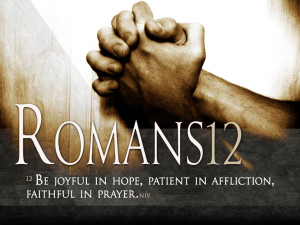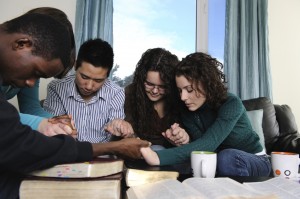 As a Sunday School or small group leader, you can probably remember some times when your group gathered together for Bible study and everything just seemed to flow. People participated, the discussion was tremendous, and several group members shared some excellent applications of the Bible study to their life.
As a Sunday School or small group leader, you can probably remember some times when your group gathered together for Bible study and everything just seemed to flow. People participated, the discussion was tremendous, and several group members shared some excellent applications of the Bible study to their life.
Then we have all had those group meetings when nothing seemed to connect! The sharing was shallow, people seemed disinterested, and dismissing the group seemed to be the only application anyone wanted to talk about. The group chemistry just wasn’t happening.
We have all been there.
There are certainly some mechanics to Bible study and principles of Bible teaching that every group leader needs to learn in order to lead the Bible study. But there is more to being a group leader than knowing the mechanics. The spiritual needs of the group members are important to them, and the ability of the group and the awareness of the group leader to properly address those needs is vital.
Many group members become disenchanted if they perceive that the group is more about intellectual knowledge than spiritual care. And let’s face it… we all need some spiritual care occasionally. I have found that the following two activities can have an incredibly positive affect on the individual members of the group and on the group environment too.
Weekly ministry contact
Most groups do a pretty good job of ministering to a member in crisis. The death of a loved one or a serious illness are two prime examples. But group members often do not share the daily needs of life with their group unless they are personally asked. The bigger the group gets, the more likely these more personal needs can be left unaddressed. Contacting group members personally during the week is an excellent way to stay in touch with them and also let them share any personal requests they may have.
Prayer Quads
We have all had those group meetings when the prayer requests were so abundant that there was no time for Bible study. Personal ministry and prayer are important to a biblical small group, but when it squeezes out Bible study, ministry and fellowship, the overall group experience will become a challenge. To address this issue, the group can sometimes save the prayer time to the end of the group. Usually about 15 minutes is appropriate. Here is how the prayer quad works:
- Ask group members to move their chairs and sit in a group of four people;
- Give each person a 3 x 5 index card;
- Each person writes their name and 2-3 prayer requests on the card;
- Each person briefly explains their requests and then hands the card to the person on their left;
- Each group member then prays for the requests on the card they have received;
- An additional option is to give the cards to the group’s prayer coordinator after the prayer has finished praying. The prayer coordinator can then compile the requests into an email and send them to the entire group.
I have found that these two simple activities will heighten the group’s spiritual experience and encourage group members to share their personal needs followed with prayer. A group’s spiritual chemistry is better if the members’ needs are addressed and lifted in prayer, resulting in better fellowship, ministry, and Bible study.
______________
 Bob Mayfield serves as the Sunday School and Small Group specialist for the Baptist General Convention of Oklahoma. He has also served as interim minister of education in several churches and is a Sunday School/small group consultant.
Bob Mayfield serves as the Sunday School and Small Group specialist for the Baptist General Convention of Oklahoma. He has also served as interim minister of education in several churches and is a Sunday School/small group consultant.
Bob is married and has two adult children, Zach and Mary Kathryn. Bob also blogs at his own site,bobmayfield.com and manages an online training site for Sunday School leaders of all ages at reconnectss.com.




